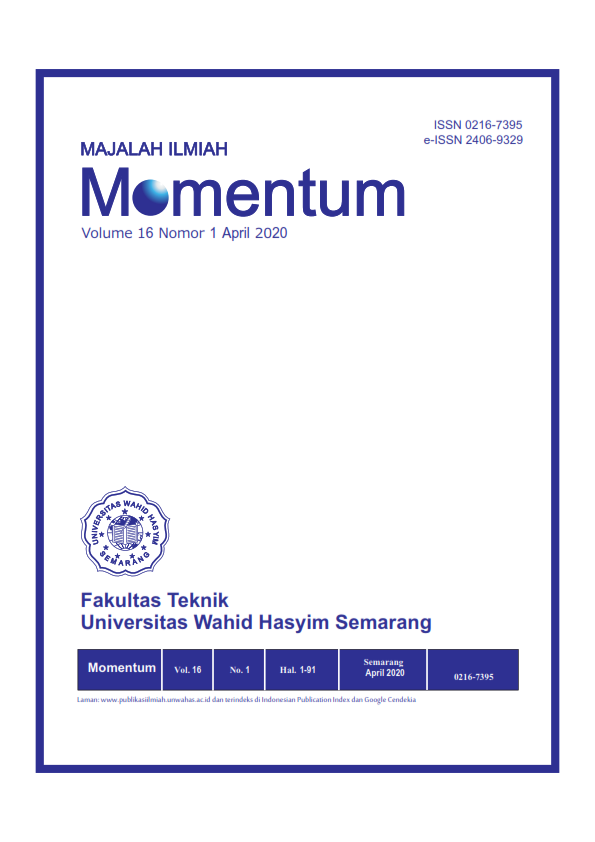ANALISIS PENGARUH VISKOSITAS PELUMAS MULTI GRADE TERHADAP KARAKTER PELUMAS
DOI:
https://doi.org/10.36499/jim.v16i1.3347Abstract
Kontak mekanik antara elemen mesin merupakan sebuah hal yang tidak dapat dihindari. Metode untuk meminimalkan keausan akibat kontak adalah dengan cara memberikan pelumas pada sistem tersebut. Ketahanan viskositas pelumas terhadap temperature sangat dipengaruhi oleh jenis bahan dasar pelumas. Tujuan penelitian ini untuk mengetahui pengaruh bahan dasar pelumas terhadap umur viskositas. Pada penelitian ini menggunakan jenis pelumas pada suhu kamar cenderung mengalami penurunan yang cukup signifikan sedang pada suhu kerja cenderung stabil, hal ini karena pada temperature kamar viskositas pelumas lebih tinggi sehingga penurunan viskositas yang drastis akan terjadi. Pada suhu kerja viskositas pelumas sudah turun, sehingga kalau terjadi penurunan viskositas tidak terlalu signifikan. Pelumas semi sintetik mempunyai kestabilan viskositas yang lebih baik dibanding pelumas mineral dan semi premium mineral , hal ini karena pelumas semi sintetik secara umum mempunyai sifat kimia yang lebih baik , struktur kimia nyai seragam dibandingkan pelumas mineral dan premium mineral. Kata kunci: gesekan, pelumas, temperature, viscousityDownloads
Published
Issue
Section
License
Authors who publish with this journal agree to the following terms:
The journal allow the authors to hold the copyright without restrictions and allow the authors to retain publishing rights without restrictions.
Authors retain copyright and grant the journal right of first publication with the work simultaneously licensed under a Creative Commons Attribution License that allows others to share the work with an acknowledgement of the work's authorship and initial publication in this journal.
Authors are able to enter into separate, additional contractual arrangements for the non-exclusive distribution of the journal's published version of the work (e.g., post it to an institutional repository or publish it in a book), with an acknowledgement of its initial publication in this journal.
Authors are permitted and encouraged to post their work online (e.g., in institutional repositories or on their website) prior to and during the submission process, as it can lead to productive exchanges, as well as earlier and greater citation of published work (See The Effect of Open Access).

This work is licensed under a Creative Commons Attribution 4.0 International License.

